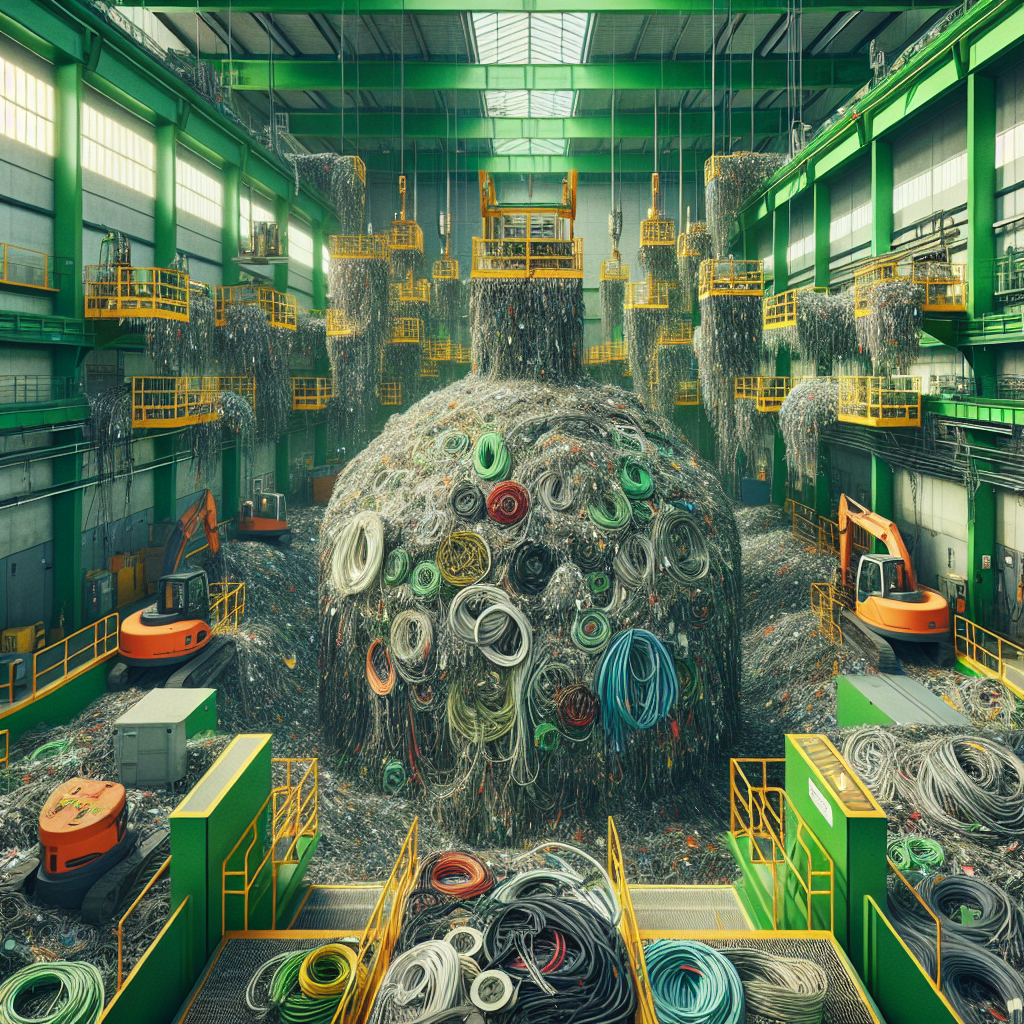Blog Ecobraz Eigre

Recycling of Industrial Electric Cables in São Paulo
Importance of Industrial Electric Cable Recycling
Recycling industrial electric cables is a crucial practice for environmental sustainability and compliance with current regulations in São Paulo. Electric cables contain valuable materials, such as copper and aluminum, which can be recovered and reused, reducing the extraction of natural resources and minimizing environmental impact.
Applicable Legislation for Electric Cable Recycling
In Brazil, the recycling of solid waste, including industrial electric cables, is primarily regulated by Law No. 13,826/2019 and the National Solid Waste Policy (Law No. 12,305/2010). These laws establish shared responsibility for the product life cycle, from manufacturing to final disposal, encouraging selective collection and reuse.
Technical Processes for Recycling Industrial Electric Cables
The recycling process involves the separation of metallic components from the plastic or rubber insulation. Initially, sorting and roughing of the cables take place, followed by thermal or mechanical stripping to recover copper or aluminum. The recovered materials are sent for reprocessing and reuse in the industry, generating savings and reducing energy consumption.
Collection and Reverse Logistics
Proper collection of used industrial electric cables is essential to ensure the efficiency of the recycling process. In São Paulo, there are programs and protocols that facilitate the proper collection and transportation of these wastes. For activities related to electronic waste collection, scheduling can be consulted at electronic waste collection. Reverse logistics must comply with CONAMA Resolution No. 482/2017, which regulates the management of electrical and electronic waste.
Environmental Impacts and Economic Benefits
Recycling industrial electric cables prevents soil and water contamination by heavy metals and flame retardants present in the insulators. Furthermore, copper reuse reduces demand for mining, an activity with significant environmental impact. Economically, recycling generates jobs, fosters the metallurgy value chain, and contributes to the circular economy.
Security and Safe Disposal of Media and Devices
In managing waste related to cables and technological components, the importance of safe disposal of media and electronic devices containing sensitive information is emphasized. Data sanitation procedures follow best practices to guarantee information security. To schedule specialized services, visit safe disposal of electronic media.
Technical Standards and Certifications
Recycling activities must follow specific technical standards, such as ABNT NBR 15448-1, for processing electric cable waste, ensuring quality and safety in processes. Additionally, environmental certifications according to the National Information System on Solid Waste Management (SINIR) are recommended to ensure compliance and transparency.
Conclusion
The recycling of industrial electric cables in São Paulo is a well-established practice involving technical, legal, and environmental aspects. Complying with current legislation, implementing efficient processes, and ensuring proper logistics result in significant environmental benefits and contribute to industrial and urban sustainability.

Deixe um comentário
O seu endereço de e-mail não será publicado. Campos obrigatórios são marcados com *